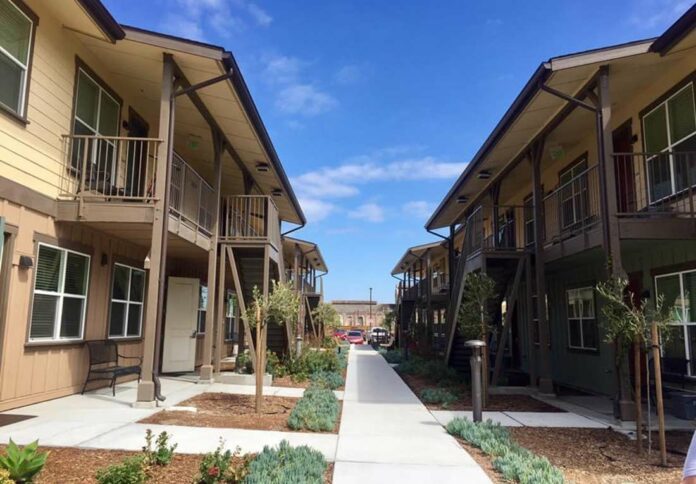
The tragic deaths of seven farmworkers in Half Moon Bay in January revealed an ugly, persistent truth: there are parts of our state where our essential, agricultural workers still live in deplorable conditions. There are no permits, no inspections and conditions are substandard. But building dignified farmworker housing in California is no easy task.
A 2018 study on the farmworker housing in the Salinas and Pajaro valleys alone revealed a need for 45,560 units of housing to alleviate overcrowding in farmworker households in Monterey and Santa Cruz counties. And the need is only increasing as more agricultural employers are resorting to the H2A guest worker program to fill a vacuum in a worsening labor shortage.
But building farmworker housing in coastal counties is not easy. Such projects often face long delays in the permitting process, NIMBY opposition, and then even lawsuits after an approval.
However, something remarkable is happening in the Salinas Valley. Local agricultural employers, in the renowned “Salad Bowl of the World,” are setting the high standard for farmworker housing for the nation. Farmers are leading by fully funding a growing number of employer-sponsored farmworker housing projects for their workforce.
The first project was constructed by local agriculture giant, Tanimura & Antle, in 2015 in Spreckels to provide housing for up to 800 of its domestic and H2A guest workers. The project faced NIMBYism and some of the worst stereotypes about farmworkers. Some nearby residents alleged that the project would attract drugs and alcohol, prostitution, loitering, harassment of school children, traffic, among other nuisances. None of those concerns ever came true.
What’s more remarkable beyond fully paying all construction costs, Tanimura & Antle also fully furnished the apartments, along with furniture, cookware, smart TVs, and cable and internet service. The exterior included manicured lawns, barbecue pits and picnic areas, a soccer and baseball field, a laundry room, and a well-equipped recreation room. The Salinas Adult School later partnered to bring English as a Second Language classes to the campus.
Since then, other farmers have followed suit. The Nunes Company built a complex for 600 workers in North Salinas, a collective of farmers built another for 1,200 workers also in North Salinas, and another two projects are being completed in Greenfield and King City in South Monterey County for another 1,000 workers. Altogether, these five projects will provide housing for up to 3,600 farmworkers, leaving other existing housing stock available for the community-at-large.
All these units are being constructed by a local general contractor, Avila Construction, which has been perfecting its model with each new project. Good management and security of the apartment complexes have prevented complaints from neighbors.
But there is only one thing that farmers have asked from county and city governments: help them prioritize and expedite the permitting process. So, in June 2021, my colleague Supervisor Chris Lopez and I pushed to formalize and create a county program to do just that, making it one of the first in the nation.
Despite this local success, fervent opposition continues. The latest project in the community of Pajaro for another 361 workers was approved in December by the Board of Supervisors but faced organized opposition. The project was ultimately downsized, agricultural buffers were expanded, and construction height was raised due to the entire community being located in a flood zone. But a lawsuit has recently been filed to stop the project citing alleged violations of the California Environmental Quality Act law (CEQA), an issue that must be better addressed in Sacramento.
Fortunately, that is not deterring our farmers. Several more projects are on their way and will soon be seeking approvals, all aiming to create the same high standard of farmworker housing. Local governments throughout our nation should look to the new Salinas Valley model of farmworker housing and facilitate building the same beautiful, dignified housing for its essential workforce.
Luis A. Alejo is the chair of the Monterey County Board of Supervisors and represents the City of Salinas. His opinions are his own and not necessarily those of the Pajaronian.









